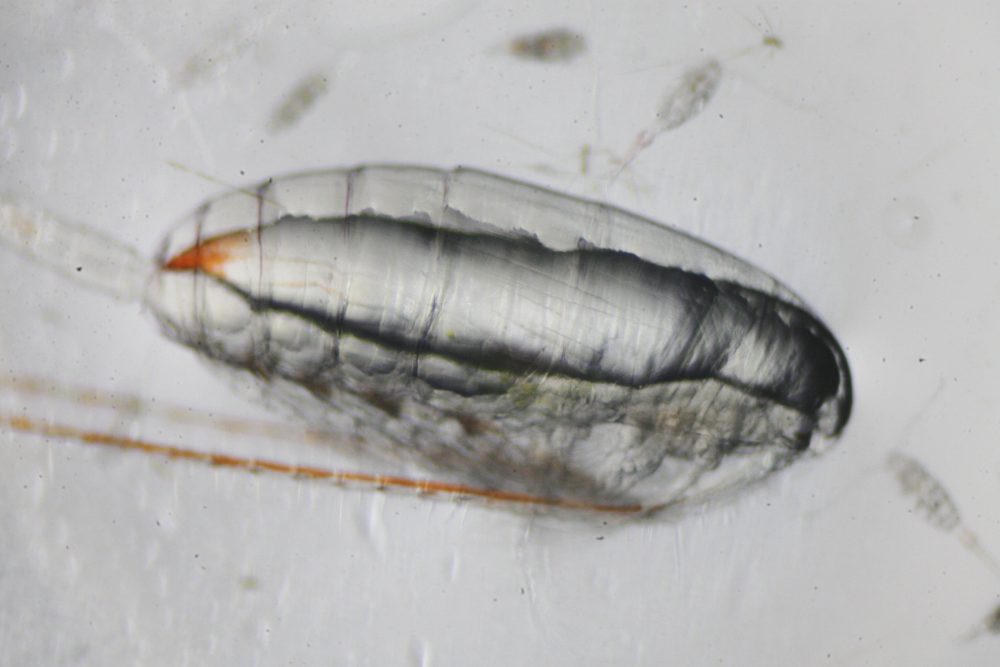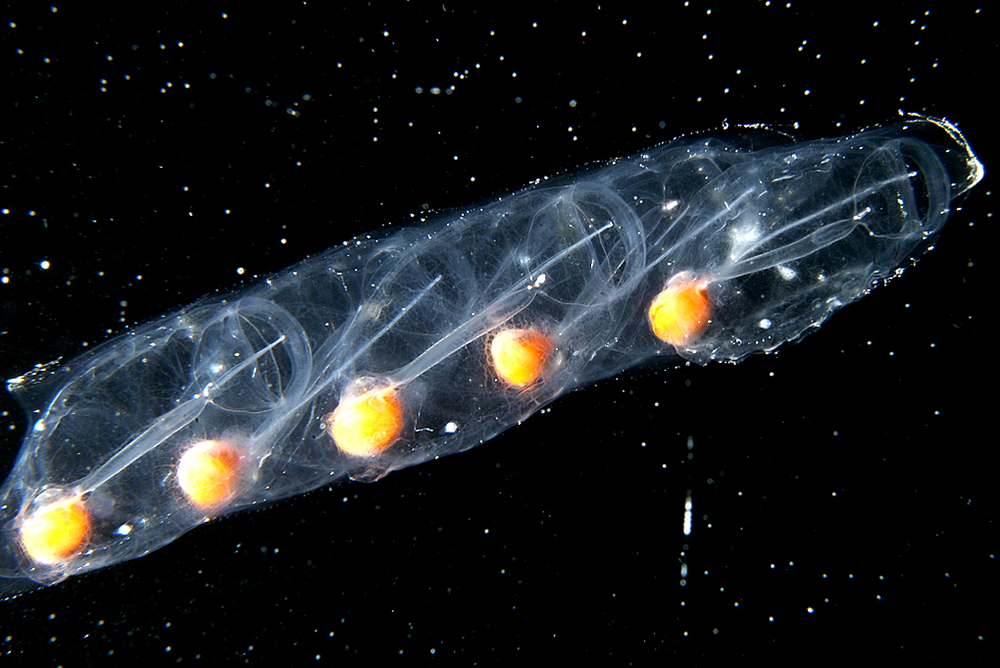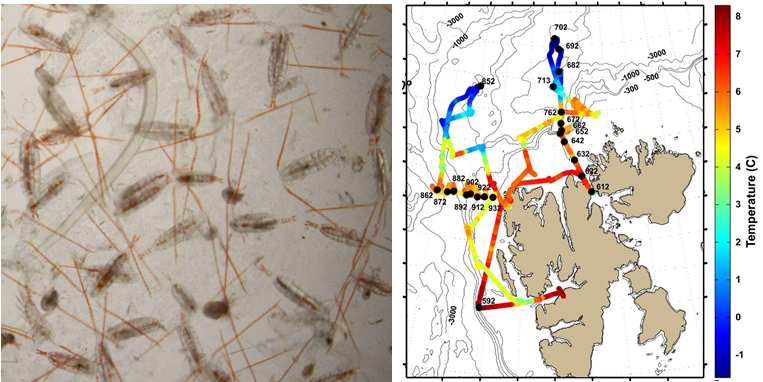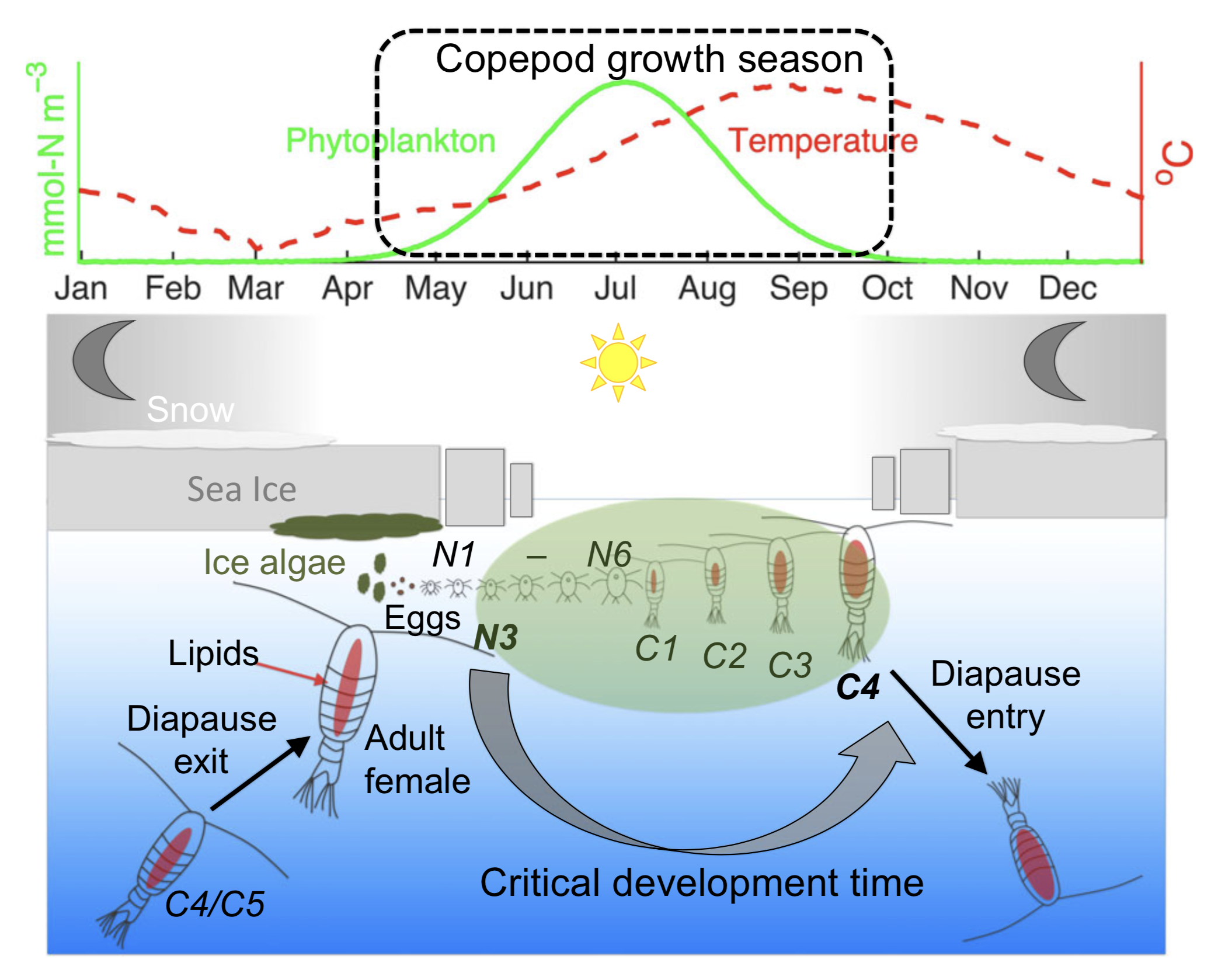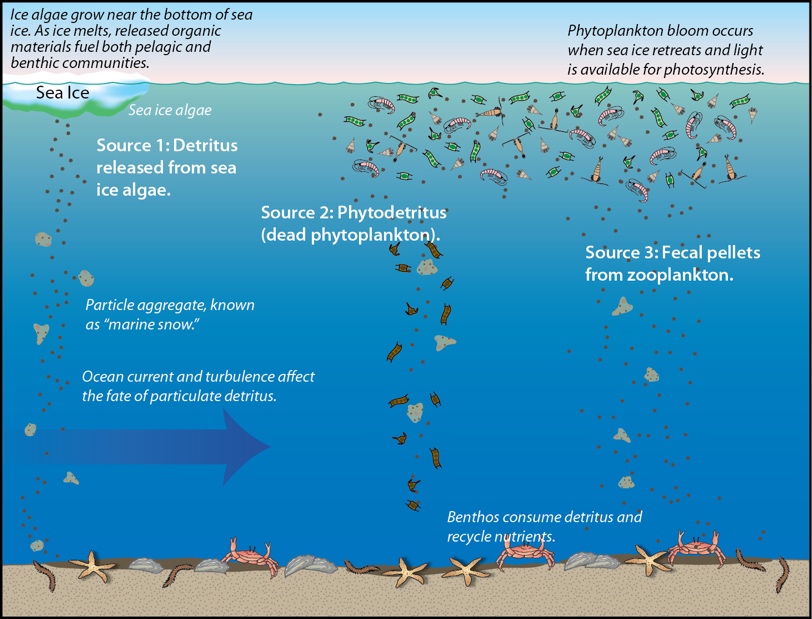Projects
Calanus Diapause
Ann Tarrant
Calanoid copepods are among Earth’s most abundant animals, and they play a key role in moving energy from the base of the food chain to higher consumers. Some copepods, such as Calanus finmarchicus, can undergo a dormant period (diapause) during their juvenile development. It is not well understood how copepods “decide” whether to undergo diapause, or when to enter or exit diapause.
Environmental genomics of Salpa thompsoni in the Southern Ocean
Ann Bucklin with R.J. O’Neill, UConn; NSF PLR-1643825
The Antarctic salp is an increasingly important player in the vulnerable Southern Ocean pelagic ecosystem. Dense blooms of salps can out-compete and displace other species, including the keystone species, Antarctic krill. We are completing a reference genome for the species and identifying genes and gene networks driving the species’ adaptation to climate change, including novel aspects of genomic evolution found only in the invertebrate class Tunicata.
Transcriptomic responses of Calanus species in the Eurasian Arctic
Ann Bucklin with Peter Wiebe, WHOI; SI_ARCTIC; Institute of Marine Research, Norway
Examining differential expression of biomarker genes associated with life history events (lipid deposition, diapause) and environmental stress responses of Calanus glacialis and C. finmarchicus. Species identification using genetic markers (InDels); gene expression analysis by quantitative PCR (qPCR). Samples are from a 2015 SI_Arctic cruise to the Fram Strait and fjord, coastal and offshore waters surrounding Svalbard, Norway.
Collaborative Research: Changes in Arctic Sea Ice and their Impact on Timing of Life History and Production of Zooplankton
Principal Investigator: Rubao Ji; Co-Principal Investigator: Carin Ashjian; Organization:Woods Hole Oceanographic Institution; NSF Organization:OPP
Robert Campbell; Co-Principal Investigator:; Organization:University of Rhode Island
Jinlun Zhang; Co-Principal Investigator:; Organization:University of Washington
This project will demonstrate the impact of climate-induced changes in the arctic physical system on the timing of primary production and a single important copepod species. This species serves as a model for understanding the interplay between the physical and biological processes in arctic systems and how the changing timing and sequence of events due to climate change may influence the success or failure of that species. The results can be extrapolated to other organisms and groups that are similarly dependent on seasonal cycles and on the timing of events in the physical and biological environment to better predict the changes in this ecosystem under changing climate.
Link: https://onlinelibrary.wiley.com/doi/full/10.1111/gcb.13890
Collaborative Research: Formation and Persistence of Benthic Biological Hotspots in the Pacific Arctic
Principal Investigator: Rubao Ji; Co-Principal Investigator: Carin Ashjian; Zhixuan Feng. Organization:Woods Hole Oceanographic Institution; NSF Organization:OPP
Robert Campbell; Co-Principal Investigator:; Organization:University of Rhode Island
Jinlun Zhang; Co-Principal Investigator:; Organization:University of Washington
Persistently high macrofaunal benthic biomass has been observed at four major benthic hotspots in the Northern Bering and Chukchi Seas. These highly productive benthic communities are ecologically important and provide abundant prey for benthic-feeding marine mammals and seabirds. This grant supports the exploration of the physical and biological processes that contribute to the formation of these benthic hotspots, and a determination of how changes in the Arctic system (including ice, ocean, and atmospheric forcing) will affect their formation and persistence.
Polar-related Project Websites
Arctic Research Center, Hokkaido University
Arctic Challenge for Sustainability (ArCS, Arctic research project in Japan)
Strategic Initiative − The Arctic Ocean Ecosystem (SI_ARCTIC)
